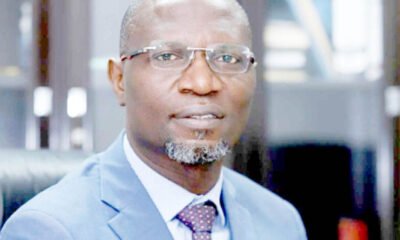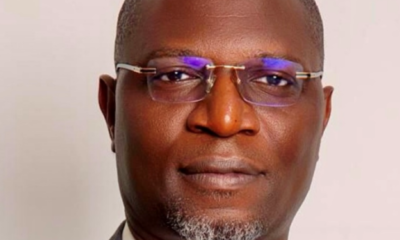Business
How SEC Secured N2.5Billion in H1, 2022

By Tolulope Oke
The Securities and Exchange Commission’s (SEC) Director General, Mr. Lamido Yuguda, stated that the SEC had accumulated a surplus of about N2.5 billion by the end of the first half (H1) of 2022, due to the decreased workforce by over 30%.
Speaking yesterday in Abuja at an interactive session on the House of Representatives Committee on Finance’s 2023–25 Medium Term Expenditure Framework/Fiscal Strategy Paper, MTEF/FSP, Yuguda noted that the Commission was experiencing particularly challenging years in 2020 and 2021 because it was running a deficit.
According to him “When we came on board, it was very difficult but we assured the National Assembly that we were going to take certain actions to make this deficit a thing of the past and our story this year is that we have actually turned the corner.
READ ALSO: How Nigeria Secured $55 Million Support For Agriculture Business
READ ALSO: Why Nigerians Must Rejects Corrupt, Failed Political Hustlers – Sowore
“If you look at our 2021 and 2020, compare with the 2022 budget and the 6 months in 2022 you will see that there is an actual improvement in the way we manage the finances of the Commission.
“It shows our budget for 2022 and the actual out time for the first half of that year. You can see that we projected a deficit of N1.6 billion, but as at the end of the first half, we have a surplus of about N2.5billion.”
Yuguda informed the Members that the SEC has so far kept its promise to lessen the Commission’s top-heavy structure by providing certain top employees with a voluntary exit package.
He said, “Mr. Chairman we were top heavy and we said before this committee that we had a plan to offer a voluntarily early exit to some of our top personnel and I am happy to report that at the end of last year we offered this scheme and quite a number of our staff took the offer and we were able to substantially reduce our workforce by almost 30per cent.



























